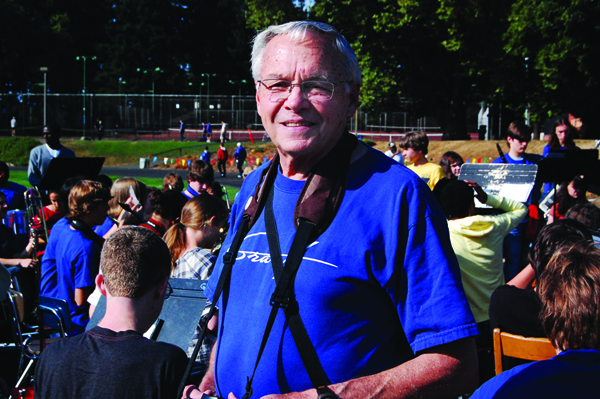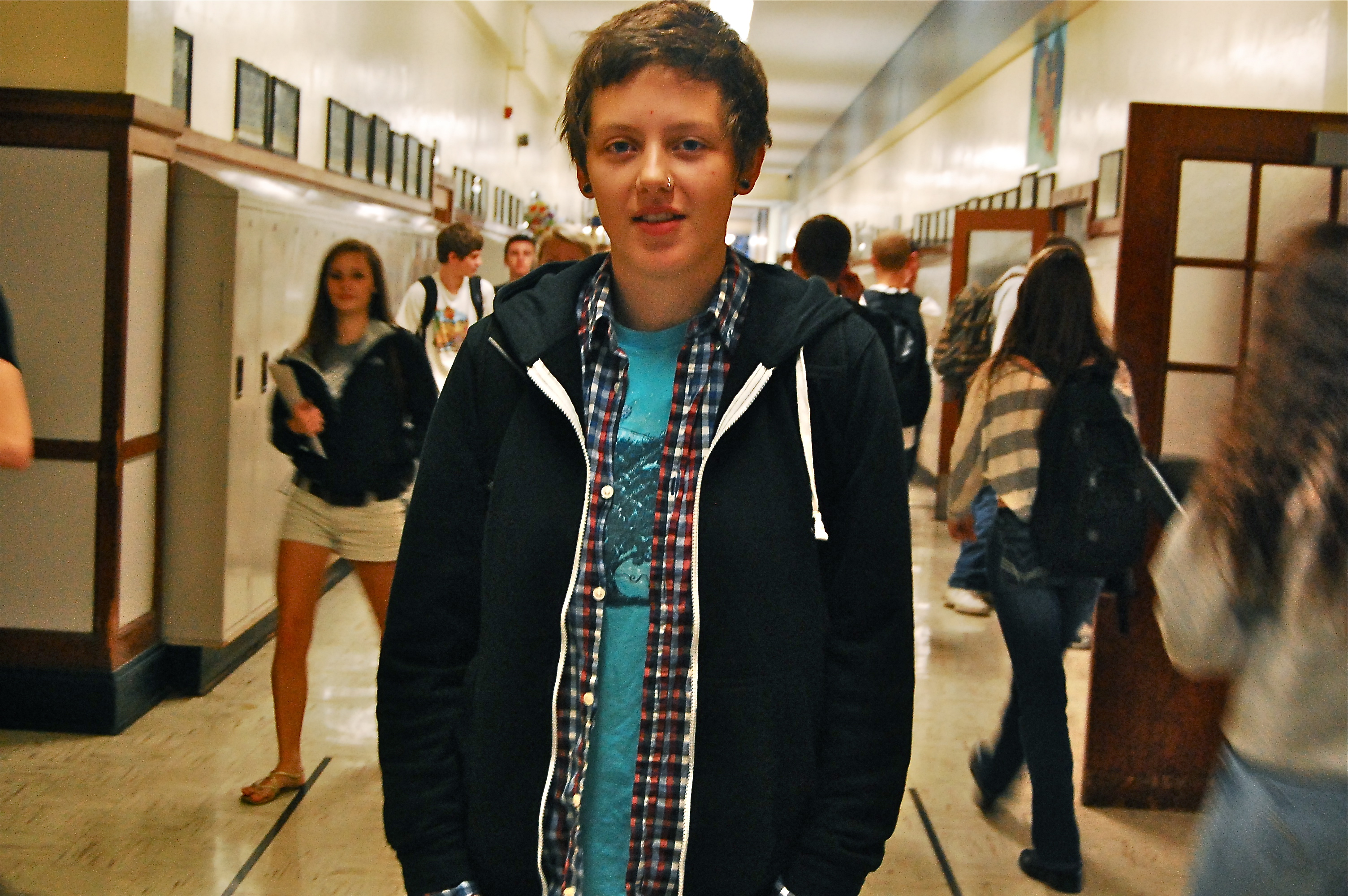Since leaving an orphanage in Ukraine last year, the Strong twins are more comfortable with their surroundings.
Imagine having to start your life over when you’re only 13, only to do it again a year later. Now imagine moving across the globe to a foreign country, one where you don’t know anyone and you can’t understand the language.
Luckily for twins Dasha and Alina Strong, moving from the Ukraine to the United States turned out to be one of the best things they’d ever done. They landed at Grant High School after being adopted by Craig Strong and Shari MacDonald Strong.
Their story is one of second chances. Dasha and Alina Panieva lost their mother at age 13. Never knowing their father, they moved in with two older sisters. When it didn’t work out they moved to the city Sumi, in the Ukraine.
Across the world, Craig Strong and Shari MacDonald Strong were looking to adopt. They first saw Dasha and Alina in a video provided by an adoption agency. “They were singing and my first impressions were just how full of life they were.” MacDonald Strong remembers.
The odds of children, in any country, over the age of eight of being adopted are extremely low, according to statistics.
The Strong family contacted the girls and they talked on the phone almost every day. Alina recalls how MacDonald Strong “would speak Russian with me, and she say ‘ya lyublyu,’ which means ‘I love you.’ When they came, I just feel like they are really my family.”
It was hard at first getting used to the language and the differences in culture. Their new parents, though, took steps to help them to fit in immediately. “We enrolled them…into Grant within the first week of coming to America,” MacDonald Strong says.
As students who spoke little to no English, they had to take tests to evaluate their understanding of the language. Dasha says the questions were mostly about math and English. “It was not hard,” she recalls. “There were some pictures and you just write in English what you see in that picture.”
Their adoption came with some perks: two loving parents, twin brothers, a younger sister who had been adopted from Russia – and an affectionate dog.
Their experience in Ukraine was completely different from their lives in America. In the orphanage, nearly 101 boys and girls ranging from ages 7 to 18 lived there. Teachers didn’t care about the kids.
While the orphans enjoyed some freedom, danger came with it. Physical fighting was common amongst the Ukrainian youth, according to Dasha. If people were drunk or high enough and you said something they didn’t like, a brawl would ensue. They remember when someone they knew broke their nose and finger from a fight that had been shut down by the police.
The twins desperately wanted a better home and were excited about coming to America. MacDonald Strong says they struggled to get them here. The girls were about to turn 16, which made the process stressed.
“After they turn 16, if we hadn’t had our paperwork turned in we couldn’t adopt them. So we scrambled.” MacDonald Strong says. The hopeful parents wound up contacting Senator Ron Wyden’s office to get help expediting the paperwork. “But it all came together.”
The only thing Dasha and Alina had to worry about was school in America.
Tee Kamoshita and her English as a Second Language class played a key role in helping the girls integrate into American culture and the Grant community.
Accustomed to teaching Japanese, Kamoshita says she makes a point to learn bits of the languages of her students “to say ‘Hey, I know how challenging it is for you to learn English and look how hard it is for me to speak a few words in your language.’”
ESL prepares students for life in America. Kamoshita also teaches cultural awareness. “It’s a crucial part about learning any language,” she says.
Schools in the Ukraine are strict. Students wear uniforms and sit up straight with their arms folded. Dasha remembers once accidentally dropping a pencil. When she went to pick it up without asking permission, the teacher slapped her hand. Teachers were to be respected.
At Grant, the girls found the relationship between students and teachers to be more relaxed. “You don’t call (teachers) ‘bro’” in the Ukraine,” Dasha says. Here? “We call Mr. Peterson ‘bro,’” Dasha says of English teacher Russ Peterson.
Kamoshita’s class usually starts off with a greeting and a “Word of the Day.” Then the tables in the room assume a certain duty: one table with English language worksheet packets, one with grammar books. Other tables are dedicated to classes the students may need help in, such as English literature classes or history.
According to Kamoshita, teachers use the Sheltered Instruction Observation Protocol to help students who are learning English. Part of the technique includes using visuals, creating step-by-step instructions for assignments, and group-work for students.
ESL classes exclude foreign-exchange students because they are “mainstreamed into the general education…so they have a more authentic American experience,” Kamoshita says.
Though, Kamoshita isn’t one to turn any students in need away. Chinese exchange student, Ychu Chang, spends his time there during an ESL period. While he doesn’t participate in actual ESL assignments, he uses the classroom as a safe place to study and get help with some of the English.
Learning English will be essential for Dasha and Alina. They both expressed interest in becoming translators after going to college. They’ll have a distinct advantage since they speak Ukrainian, Russian, English and the dialect called Sugek.
Like Dasha and Alina, kids from all cultures find common ground in ESL classes where Kamoshita says you learn so much more than just the language.




